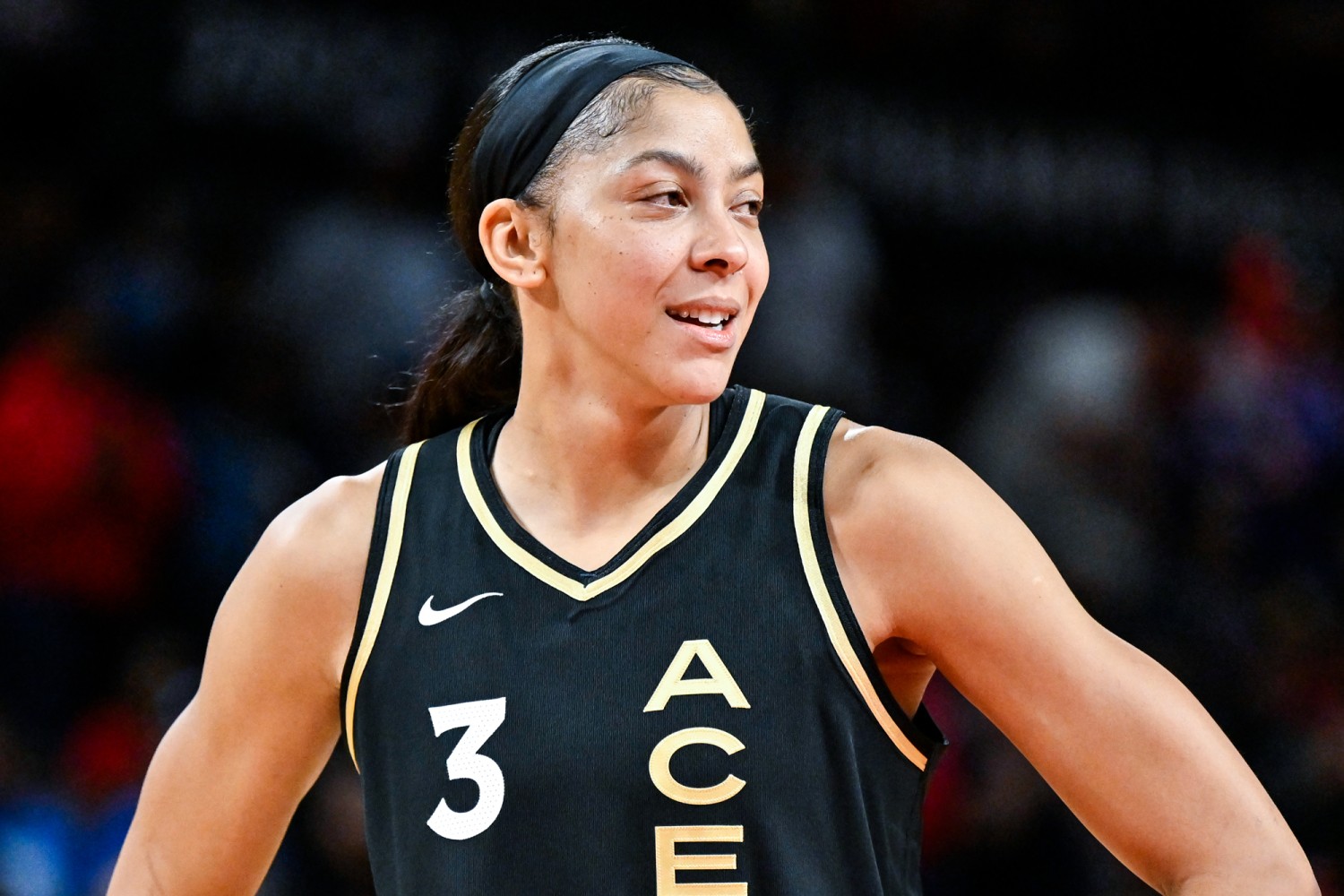As the league grapples with its newfound, explosive popularity, a recent declaration from a legendary figure has sent ripples through the WNBA ecosystem, coinciding with looming questions about the commissioner’s future.

The convergence of these narratives paints a picture of a league at an undeniable crossroads, where past stewardship meets future potential.
At the heart of the current maelstrom is Candace Parker, a recently retired WNBA icon whose voice carries immense weight and credibility. Known for her analytical prowess as much as her on-court dominance, Parker’s commentary, particularly on the burgeoning phenomena surrounding Caitlin Clark, has become essential listening.
It was during a recent broadcast or public appearance that Parker reportedly delivered what many are calling a “bombshell” insight, not just about Clark’s immediate struggles or triumphs, but about the league’s fundamental preparedness for this seismic shift.
While specific quotes are always subject to interpretation, the thrust of Parker’s sentiment was clear: the WNBA, despite its efforts, was largely caught off guard by the sheer magnitude of Clark’s impact and, in some respects, has yet to fully adapt its infrastructure and strategy to truly leverage, protect, and sustain this generational surge in interest.
Parker’s “bombshell” wasn’t a direct attack but rather a profound observation from an insider who has seen the league evolve over two decades.
Her critique hinted at a perceived slowness in implementing essential changes, such as universal charter flights, improved marketing, and proactive measures to handle the increased physical play Clark has faced.

She suggested that while the WNBA has always been deserving of more attention, it was perhaps not ready for the kind of attention Clark has brought – an overwhelming, sometimes chaotic, level of scrutiny that exposes every crack in the foundation. This sentiment, delivered by someone of Parker’s stature, serves as a powerful, undeniable challenge to the league’s current leadership.
This critical commentary arrives at a peculiarly sensitive time for the WNBA, as Commissioner Cathy Engelbert’s contract is reportedly nearing its conclusion.
Engelbert, who took the helm in 2019, has presided over a period of significant, if at times slow, growth for the league. Under her leadership, the WNBA has secured new broadcast deals, seen an increase in corporate sponsorships, and initiated talks for league expansion.
The league’s valuation has soared, and player salaries have seen modest increases, albeit still far from their male counterparts. Her tenure has undeniably laid some groundwork for the current surge in popularity.
Yet, the very magnitude of this current surge has also magnified existing fissures and criticisms. The most prominent and persistent issue has been the ongoing saga of charter flights for teams.
While Engelbert has made strides towards securing more private travel, the full implementation remains elusive, leading to uncomfortable optics and player frustration, especially in a season where sellout crowds and record viewership highlight the financial paradox.
Critics argue that the pace of change, particularly on fundamental player welfare issues, has not kept pace with the accelerating commercial appeal of the league. The “Clark effect” has essentially stripped away any remaining excuses, shining an unblinking spotlight on areas where the league is perceived to be lagging.
Caitlin Clark isn’t just breaking records; she’s breaking the mold of what was thought possible for the WNBA’s commercial appeal.
Her arrival has transformed lukewarm interest into fervent devotion, evidenced by skyrocketing ticket sales, unprecedented viewership numbers, and a palpable buzz around every game, even those not featuring the Indiana Fever. This phenomenon, while overwhelmingly positive for the league’s long-term viability, has also served as a powerful, unavoidable spotlight.

It has revealed the incredible demand for the WNBA product while simultaneously highlighting the infrastructure that, in some areas, seems ill-equipped to handle the sheer volume of this demand.
The implicit question raised by Parker’s “bombshell,” therefore, extends beyond Clark herself to the very top of the league’s organizational structure. Is Commissioner Engelbert the right person to lead the WNBA into its next, arguably most critical, phase of unprecedented growth?
Her proponents would point to the foundations she’s built, the financial gains, and the general upward trajectory that predated Clark’s arrival. They might argue that the current surge is a culmination of years of groundwork, and that stability at the top is crucial during such a volatile period.
However, the counter-argument, perhaps subtly echoed by Parker, is that the WNBA requires a leader with an even bolder vision and a faster execution timeline for this new era. The challenges are no longer about merely surviving; they’re about capitalizing on a genuine, mainstream breakthrough.
This means not just securing new TV deals but ensuring those deals reflect the league’s exploding value. It means not just talking about expansion but executing it strategically and swiftly.
Most importantly, it means ensuring player welfare, travel, and media access are not just improved, but become industry gold standards, reflecting the undeniable value these athletes bring.
The timing of Parker’s critique, set against the backdrop of Engelbert’s expiring contract, feels less like coincidence and more like a pivotal moment. It’s a professional league reckoning with its own success, understanding that the past few years, while positive, were merely a prelude.
The WNBA now stands at an undeniable inflection point. The choice of leadership for the next chapter will dictate whether the “Clark effect” becomes a sustained era of unparalleled prosperity or merely a fleeting moment of heightened interest.
The WNBA’s future hinges on its ability to embrace this moment with proactive, rather than reactive, leadership. Whether Cathy Engelbert remains at the helm to navigate this complex landscape, or if a new commissioner is brought in, the expectations are higher than ever before.
Candace Parker’s “bombshell” wasn’t just about Caitlin Clark; it was a rallying cry for a league to meet its moment, to shed any remaining caution, and to truly build the infrastructure worthy of the world-class talent and passionate fanbase it has always possessed, and which is now, undeniably, in the global spotlight.


